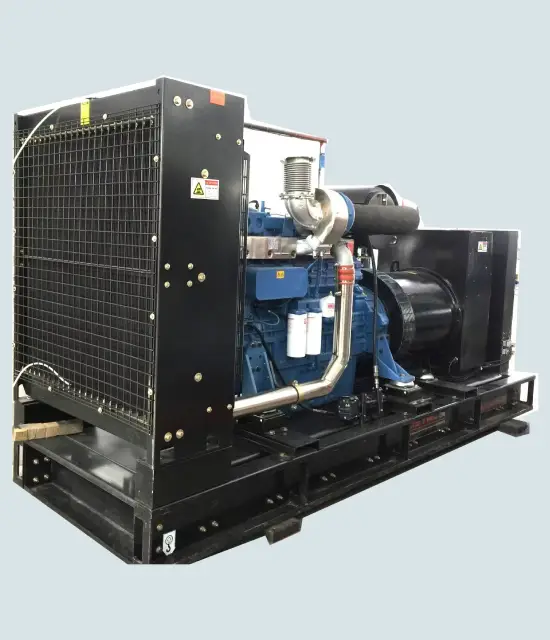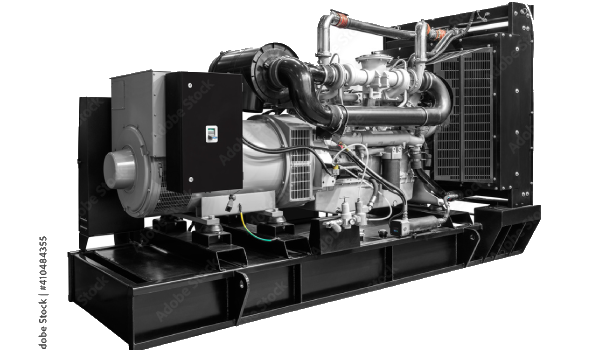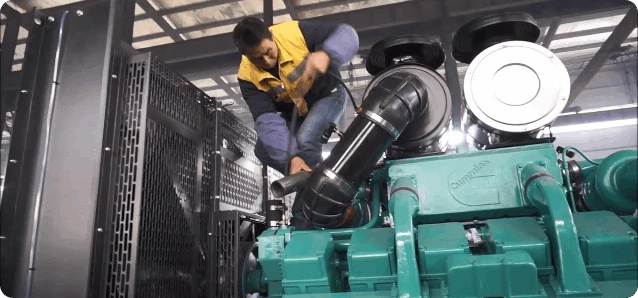about
Diesel Generators Radiator
Being seasoned genset radiator and diesel generator radiators manufacturers, we know what thermal management demands these power systems have. The radiator in diesel generator sets is required to be consistent under diverse load requirements and ambient conditions. Our designed cooling solutions combine precision-made components with optimized designs that effectively transfer the heat from the engine coolant to the ambient environment.
Purpose of the Generator Radiators
- Engine Cooling: As the diesel engine produces are known to dissipate a lot of heat while running, this excess heat can be avoided with the help of radiators
- Optimal Performance: Keeping the engine at an optimal temperature ensures that fuel burns efficiently, slows down wear, and prolongs the life of the engine.

Working Principle of a
Genset Radiator
Heat Absorption
- Coolant Circulation: The diesel generator radiator employs a specialized coolant fluid (usually water and antifreeze) that flows through the engine, soaking up heat energy from vital internal parts such as cylinders and combustion chambers.
- Heated Coolant: In its travel through the engine block and heads, this thermal transfer fluid picks up heat efficiently, then spews out through the radiator for diesel generator inlet port for cooling purposes.
Heat Transfer within the Radiator
- Radiator Core: The core of a genset radiator consists of accurately designed thin, flat tubes in parallel layouts with strategically positioned metal fins that significantly expand surface area for maximum heat dispersal.
- Coolant Flow: The hot coolant flows into the radiator in diesel generator systems via the inlet and spreads through the network of tubes in the core. Our designs optimize contact between metal surfaces and heated coolant for efficient thermal transfer.
Cooling Medium
- Airflow: As high-quality diesel generator radiator manufacturers, our design elaborate fin arrays to increase heat transfer rates. Engine-driven or electric cooling fans blow air through the fins, developing the airflow to extract heat from the system.
- Heat Dissipation: The warm coolant transfers heat energy to the metal fins, which in turn pass it to the air in motion. Through this constant cycle, the radiator for diesel generator remains at its optimal operating temperatures despite heavy loads.
Return of Cooled Coolant
- Coolant Outlet: Once thermalized, the cooled liquid leaves the radiator for the diesel generator by means of outlet port and reaches the engine again. This consistent loop ensures normal engine temperature levels during operation.
Temperature Regulation
- Thermostat: As competent manufacturers of diesel generator radiators, we ensure incorporation of high-precision thermostats controlling the coolant's temperature by varying flow through the radiator so the engine runs optimally within correct temperature ranges consistently. Pressure Cap: A calibrated pressure cap maintains optimal system pressure, effectively raising the coolant's boiling point to prevent overheating in demanding operational environments.
Specification of
Diesel Generators Radiators
Power Rating
The usable power output (often around 0.8 to 0.9 times the kVA rating).
Engine Specifications
RPM (usually 1500 or 1800 RPM for generators).
Fuel Consumption
Grams of fuel consumed per kilowatt-hour produced.
Voltage Output
Common voltages include 120V, 240V, 400V, etc.
Noise Level
Measured in decibels (dB), important for residential or noise-sensitive areas.
Cooling System
Type: Air-cooled or liquid-cooled. Radiator Size: Adequate for heat dissipation
Control System
Digital displays, remote monitoring, alarms.
Protection Features
Circuit Breaker: For overload protection. Automatic Voltage Regulator (AVR): For stable voltage output.
Accessories and Options
ATS (Automatic Transfer Switch): For automatic switching during power outages.
Key Components
Radiator Core: Contains the tubes and fins for heat transfer.
Fan: Provides airflow to enhance cooling. This can be either an engine-driven fan or an electric fan.
Thermostat: Controls the flow of coolant based on the temperature.
Pressure Cap: Regulates the pressure in the cooling system.

Maintenance and Considerations
Regular Inspection: Check for leaks, blockages, and corrosion to ensure the radiator functions properly.
Coolant Levels: Maintain the proper coolant level and concentration to avoid overheating and freezing.
Cleaning: Keep the radiator fins clean and free from debris to ensure efficient airflow and heat dissipation.

Benefits
Prevents Overheating: Keeps the engine at a safe operating temperature, avoiding damage from excessive heat.
Maintains Efficiency: Ensures that the engine operates efficiently by maintaining optimal temperatures.
Extends Engine Life: Reduces thermal stress and wear on engine components.
In summary, the radiator in a diesel power generator plays a vital role in managing engine temperatures. It works by transferring heat from the engine coolant to the air through a series of tubes and fins, aided by airflow from a fan. Proper maintenance and operation of the radiator are essential for the reliable and efficient performance of the diesel generator.

Testimonials
Recently we bought a Radiators for our Generator. The Product Quality is Excellent .This Company produces custom made Radiators and Spares too. High Quality Products and Service Support.
krishna
CLEANTEK
We got support from ark engineering wonderful work done.He given idea for money save in genset. Ark engineering owner wonderful person.i will strongly recommend to ark engineering.
R.Prasannavenkatesh
Laser Experts India
Coimbatore
We have taken the services of the ark engineering for the service of our genset radiators.it was great Service at a better price .really professional and technical.
Suresh V
FAQ'S
What applications are diesel generators commonly used for?
Diesel generators are widely used in various applications, including construction sites, emergency power supply for hospitals, data centers, and residential backup power.
How do I choose the right size diesel generator for my needs?
Diesel generators are widely used in various applications, including construction sites, emergency power supply for hospitals, data centers, and residential backup power.
How long can a diesel generator run continuously?
Diesel generators are widely used in various applications, including construction sites, emergency power supply for hospitals, data centers, and residential backup power.
How do I store diesel fuel safely?
Diesel generators are widely used in various applications, including construction sites, emergency power supply for hospitals, data centers, and residential backup power.
Are there any environmental concerns with using diesel generators?
Diesel generators are widely used in various applications, including construction sites, emergency power supply for hospitals, data centers, and residential backup power.